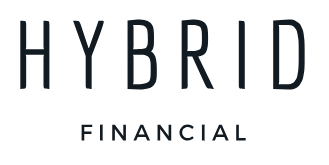The Hidden Costs of Mortgages: What You Need to Know About Fees
When you think about buying a home, your mind probably goes straight to saving for a deposit or figuring out the best mortgage rate. But beyond these big-ticket items, there are a lot of smaller fees that can sneak up on you during the mortgage process. At Hybrid Financial, we want to make sure you’re fully prepared for all the costs that come with getting a mortgage, so here’s a breakdown of the most common ones you might encounter.
1. Mortgage Arrangement Fee
This is one of the larger upfront costs you’ll face, and it’s basically what the lender charges to set up the mortgage for you. Expect it to range anywhere from £1,000 to £2,000, depending on the lender and the value of your property. The good news is that you can usually add this fee to your mortgage balance. The bad news? You’ll pay interest on it, so if you can, it’s better to pay it upfront or overpay your mortgage early to reduce that extra cost. However, it is good to note that not all lenders have products which charge these arrangement fees.
2. Valuation and Survey Fees
Before a lender gives you a mortgage, they’ll need to check the property’s value to make sure it’s worth the amount you’re borrowing. This could cost anywhere between £100 and £1,500. You might also want to get your own survey done to ensure there are no hidden problems with the property (think structural issues or future repairs). While not essential, a good survey could save you headaches down the line—and some money, too. Basic surveys can start around £500, but more detailed ones cost a bit more. Again, some lenders do have products and services which do not include valuation fees!
3. Legal Fees
You’ll need a solicitor to handle the legal side of things—like doing the property searches and transferring ownership. Legal fees are typically around £1,500, but they can go up if the sale is complicated. It’s also common to see small charges like CHAPS fees (for transferring money), so make sure you get a full breakdown from your solicitor upfront.
4. Stamp Duty
Stamp duty is one of those unavoidable costs when buying a property over £250,000, and it can get pretty steep. For instance, if your property is worth £500,000, you could be looking at a bill of around £15,000. First-time buyers do get some relief, but it’s worth planning ahead for this cost, especially if you're not buying your first home.
5. Broker Fees
If you’re working with a mortgage broker to find the best deal, there might be a fee involved—often up to 1% of the mortgage value. While some brokers don’t charge for their services, others might, so it’s important to ask upfront. The fee might seem high, but a good broker could save you more in the long run by helping you secure a better deal.
6. Early Repayment and Exit Fees
If you want to pay off your mortgage early or remortgage with a different lender, you could face early repayment charges (ERCs). These can range from 1% to 5% of the remaining balance. You might also come across an exit fee, which could be anywhere from £50 to £300 when you close the mortgage. These fees vary, so it’s a good idea to read the fine print before signing up for a mortgage deal.
The Big Picture
When comparing mortgage deals, it’s easy to just focus on the interest rate, but don’t forget about the fees. A low-fee or fee-free deal might look tempting at first glance, but it could come with a higher interest rate that costs you more in the long run. That’s why it’s important to look at the whole package, including the fees and the interest rate. Using tools like the APRC (Annual Percentage Rate of Charge) can help you get a clearer view of the total cost, and if you’re unsure, a mortgage broker can help you weigh your options.
At Hybrid Financial, we’re here to guide you through these decisions and help you make the smartest choice for your situation. Don’t hesitate to get in touch if you have any questions about mortgage fees or need expert advice on your next steps.

